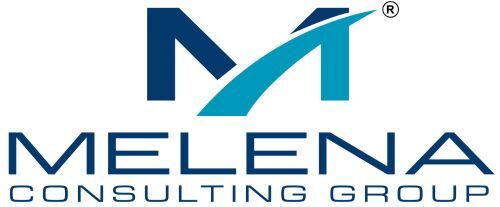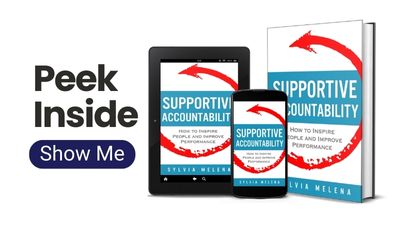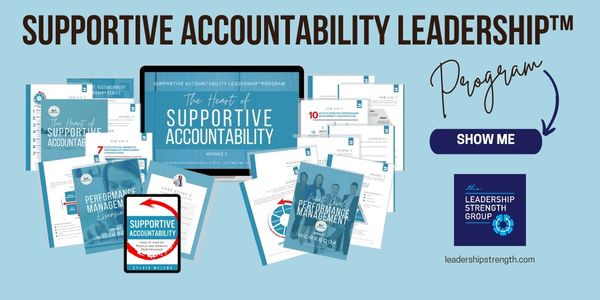Only 21% of U.S. employees strongly agree that they trust the leadership in their organization.
Denise McLain and Ryan Pendell, Gallup.com1
It’s sad but true.
Most employees don’t trust their leaders, and this has negative ramifications on people and performance.
But it doesn’t have to be this way.
Here are six things you can do to build employee trust. And the best part is that they’re not earth shattering. They’re simple things you can do every day that will make a huge difference.
Employee Trust and Workplace Performance
Trust is the foundation for all healthy relationships, and the supervisor-employee relationship is no exception.
As such, trust fosters strong teamwork, cooperation, information sharing, problem-solving, and conflict resolution. A high degree of workplace trust drives higher levels of employee diligence, productivity, and innovation. These lead to stronger organizational performance.2
Employee Trust in Leadership
Employees trust you as a leader when they believe your intentions towards them are good and they feel safe being vulnerable with you.3
The way you interact with the people you serve will have a direct impact on how much they will trust you and your organization. Employees trust leaders who care about them, demonstrate honesty, create a safe environment, act in fairness and consistency, and keep their promises.
1. Caring
People matter above all else.
Leaders who care about people have a positive impact on performance.4 They care about employees. They care about customers. And they care about their leaders. Don’t sacrifice the health, safety, and well-being of people to meet performance goals.
Employees are people, not merely human resources, assets, or capital. They’re someone’s mother, father, son, daughter, spouse, friend, or neighbor. They show up to work every day with their needs, priorities, hopes, dreams, fears, and concerns.
To genuinely care about people, you must first get to know them. This doesn’t mean that you pry into their personal lives, but rather that you listen carefully. You would be surprised how much you can learn about what makes people tick if you simply listen.
The more you know about people, the more you can support them and the more they know you care.
2. Honesty
Trust requires honesty.
Share the bigger picture regarding goals, objectives, and pressing matters, and people will go the extra mile for you. When people ask you a question that you can’t answer because of confidentiality, laws, or ethical reasons, say so. Employees will value and appreciate your honesty.
Where there’s honesty, there’s no room for manipulation or hidden agendas. Employees know when leaders are dishonest. If you use deceit or manipulation to get things done, it may work for a while, but sooner or later people will figure it out. When the moment of truth comes, your credibility will be damaged, and this will hamper your effectiveness.
3. Safety
Create an environment where people feel safe being honest and vulnerable with you.
When you create a safe environment, employees will be open with you. They will let you know about their needs, struggles, and concerns without fear of reprisal. They will feel free to express their thoughts honestly, even when their perspectives differ from yours.
Don’t use this vulnerability against them, but rather to understand how you can best support them and help them achieve success. When employees know you have their backs, they will have yours.
4. Fairness
Treat everyone fairly.
Let fairness and justice be the hallmark of how you rate performance, distribute resources, provide rewards, and select people for choice assignments. Have an objective and standardized decision-making system and adhere to it.
Be transparent about your system and let employees know what it takes to reap the rewards. Employees shouldn’t have to guess what it takes to earn excellent performance ratings, receive recognition, or cash in on other perks.

5. Consistency
Be consistent in what you say and do.
You can’t show compassion one moment and lash out the next. People need predictability. Employees can’t feel safe if they don’t know what to expect from you. They will be uneasy approaching you if they can’t anticipate how you will react.
Uncertainty creates a stressful environment, and this stress is detrimental to employees’ health and success and to that of your organization.
6. Promise Keeping
Keep your promises.
Be careful with what you say and how you say it, as promises can be made directly or merely implied. Once you commit, employees expect you to deliver. Failure to follow through will damage trust.
Trust takes effort to build and sustain over time and can be quickly lost. Once trust is lost, it takes a tremendous amount of work to repair the damage and earn it back.
The great news is that when trust has been firmly established and your supervisor-employee relationship is rock solid, employees will be more forgiving and understanding when you make mistakes.
Each interaction you have with employees is a golden opportunity to earn and reinforce trust. Use these opportunities to build strong supervisor-employee relationships that lead to success and create a thriving workplace.
See the Complete Training Program:

SYLVIA MELENA is the Principal of Melena Consulting Group, a leadership and organizational development consulting firm. She is also the two-time international award-winning and best-selling leadership author of Supportive Accountability: How to Inspire People and Improve Performance and its Spanish translation, Responsabilidad solidaria: Cómo mejorar el rendimiento laboral por medio del apoyo.
REFERENCES 1 Pendell, D. M. and R. (2023, November 14). Why trust in leaders is faltering and how to gain it back. Gallup.com. https://www.gallup.com/workplace/473738/why-trust-leaders-faltering-gain-back.aspx. Accessed on November 14, 2023. 2 Janine Victor and Crystal C. Hoole. “The Influence of Organisational Rewards on Workplace Trust and Work Engagement,” SA Journal of Human Resource Management 1, no. 0, (2017): 1–14, https://sajhrm.co.za/index.php/sajhrm/article/view/853. Creative Commons License: https://creativecommons.org/licenses/by/4.0/. Accessed July 1, 2018. 3 Janine Victor and Crystal C. Hoole, “The Influence of Organisational Rewards,” 1–14. Accessed July 1, 2018. 4 Schalk W. Grobler and Yvonne du Plessis, “Requisite Leader Behavioural Competencies for Sustainable Organisational Performance,” Acta Commercii 16, no. 1 (2016): 1–8. http://dx.doi.org/10.4102/ac.v16i1.347. Creative Commons License: https://creativecommons.org/licenses/by/4.0/. Accessed July 1, 2018.







